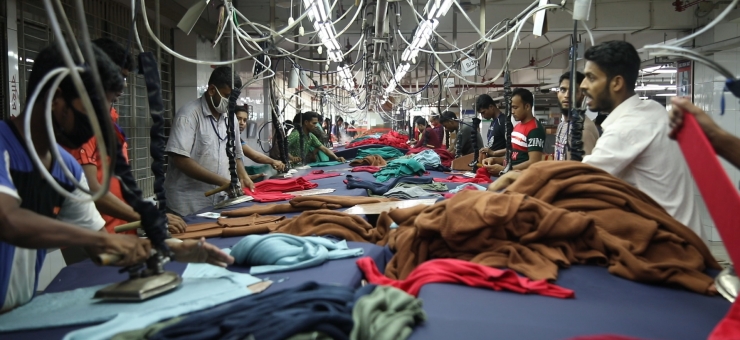UNI GS: OECD countries must act to save lives in the garment industry

UNI General Secretary Christy Hoffman co-authored an opinion piece with IndustriALL Assistant General Secretary Jenny Holdcroft in the OECD Observer calling on the world’s richest countries to do more to save lives in the garment industry.
The op-ed outlines the advances in safety made because of the Bangladesh Accord, of which UNI and IndustriALL are signatories.
“The Bangladesh Accord works because it has teeth,” Hoffman and Holdcroft write. “Two international brands that failed to meet their legal commitments have been successfully taken to the Permanent Court of Arbitration in The Hague. This has led to millions of dollars in reparations being used to remedy life-threatening hazards at the brands’ supplier factories. A further US$300,000 has been paid into a fund to support IndustriALL and UNI’s work to improve pay and conditions for workers in global supply chains.”
But despite the millions of workers covered by the Accord's protections and the tens-of-thousands of repairs required by its legally-binding structure, much work is left to be done and many workers are left without protections. That's why OECD countries must act.
“OECD countries must use their voice to condemn the attacks on workers and trade unions in Bangladesh. OECD member countries promise to uphold fundamental labour rights and sign up to guidelines to commit multinational enterprises to take responsibility for workers in their global supply chains. This must also include working with trade unions on a national or sector-wide level to achieve wages that, at the very least, meet the basic needs of workers and their families.
“The EU, as Bangladesh’s biggest trading partner, also has a major role to play. Bangladesh benefits from preferential trade tariffs under the EU’s Generalised System of Preferences. In turn, Bangladesh is expected to put into practice key UN human rights and International Labour Organization conventions. This is clearly not happening and yet Bangladesh is given chance after chance to put matters right. OECD countries, many of which are also members of the EU, cannot turn a blind eye to these violations. They must speak up.“

